EU Monitor - 8 July 2022 - EAHP’s position paper on ATMPs
The EAHP EU Monitor is a regular round up of news relevant to hospital pharmacy in Europe.
EAHP General Assembly adopts position on ATMPs
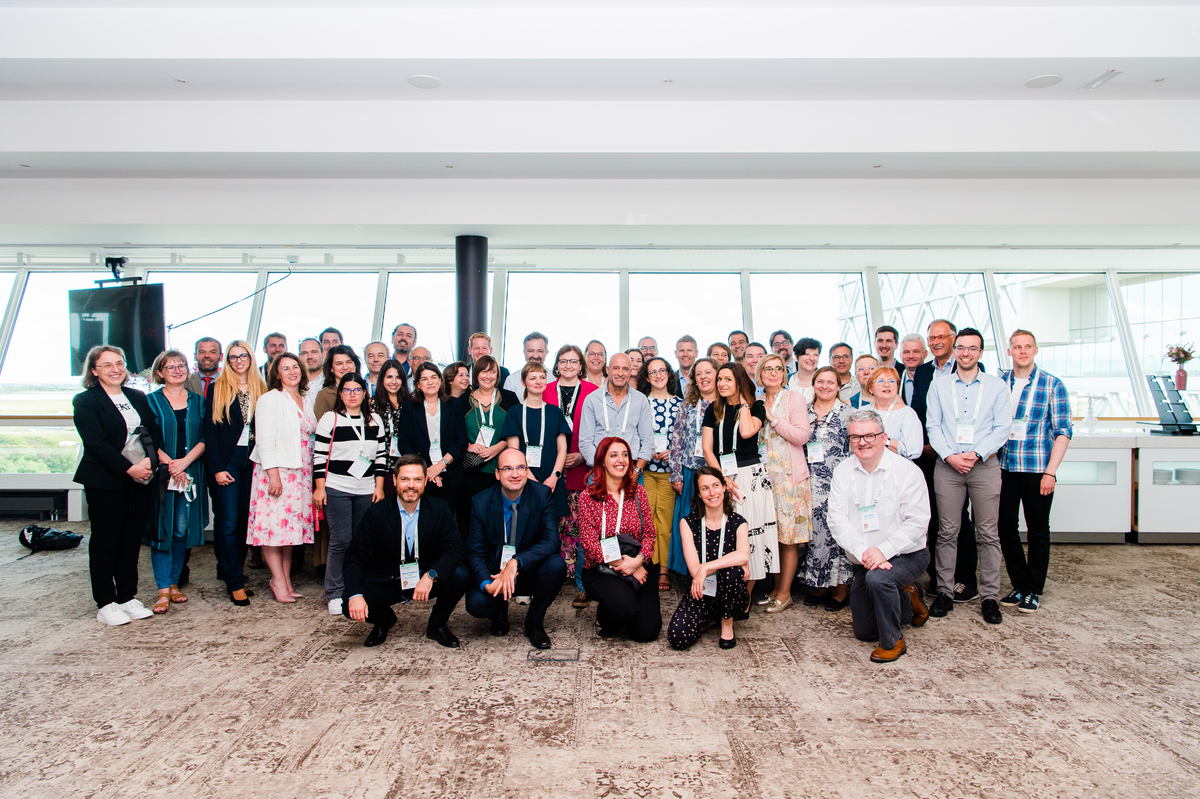 Last month the members of the European Association of Hospital Pharmacists (EAHP) came together for their annual General Assembly. Like every year, EAHP's 35 member associations discussed and approved new position papers developed for the profession. The Position Paper on Advanced Therapy Medicinal Products was one of three that was adopted by EAHP's General Assembly.
Last month the members of the European Association of Hospital Pharmacists (EAHP) came together for their annual General Assembly. Like every year, EAHP's 35 member associations discussed and approved new position papers developed for the profession. The Position Paper on Advanced Therapy Medicinal Products was one of three that was adopted by EAHP's General Assembly.
Advanced therapy medicinal products (ATMPs) are innovative and complex medicines used to treat a variety of human health issues. Areas of application include, but are not limited to, cancers, neurodegenerative diseases, inherited diseases and autoimmune diseases. In particular, patients suffering from severe, rare or chronic diseases might benefit in the future from the growing use of ATMPs. Hospital pharmacists are responsible for ensuring the safe and effective use of medicines. This expertise of the pharmacy workforce should be a central component to adequate delivery of ATMPs within hospitals. Their participation is not only invaluable in clinical trials for ATMPs where they are responsible for the correct receipt, storage, distribution and control of the clinical trial drug, but also for routine clinical practice.
Since the use of ATMPs for the treatment of disease and injury is growing, EAHP adopted a position paper on this topic that outlines the roles and responsibilities of hospital pharmacists in the handling of ATMPs, addresses their education and training in relation to these products and provides insights on the assessment of ATMPs and pharmacoeconomics.
In its position paper, EAHP
- states that the management of ATMPs, as licensed medications, is the responsibility of the hospital pharmacist.
- urges competent authorities across Europe to utilise the best practices and outcomes gathered by the Special Interest Group focused on hospital pharmacist's preparedness for in-vivo gene therapy medicinal products.
- recommends the rapid development of European education and training materials in collaboration with scientific societies for healthcare professionals covering the entire ATMP spectrum.
- calls on pharmacy schools and professional bodies offering continuing education to integrate training of pharmacists on ATMPs into their curricula and training programmes.
- recognises the importance of further promoting the information sharing and communication on ATMPs towards patients and patient organisations.
- reminds national competent authorities to recognise the invaluable role of hospital pharmacists in regard to the assessment of ATMPs and pharmacoeconomics.
EAHP's Position Paper on Advanced Therapy Medicinal Products is available HERE
EAHP joins the HERA Civil Society Forum
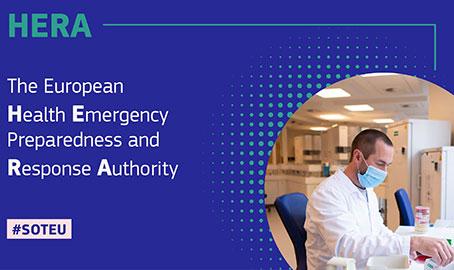 Last month, EAHP joined the newly established HERA Civil Society Forum as one of its members. The Civil Society Forum was set up to provide regular input on the views and opinions of civil society stakeholders to HERA. EAHP is among the 23 organisations that were selected to represent patients, consumers and healthcare professionals.
Last month, EAHP joined the newly established HERA Civil Society Forum as one of its members. The Civil Society Forum was set up to provide regular input on the views and opinions of civil society stakeholders to HERA. EAHP is among the 23 organisations that were selected to represent patients, consumers and healthcare professionals.
The first virtual meeting at the end of June focused on gathering the views of participants on the lessons learned from the COVID-19 crisis and the role of HERA in the response, the state of preparedness of the EU for future health emergencies and the priorities of HERA for 2023.
The Civil Society Forum is part of HERA's governance structure that also includes an Advisory Forum, bringing together HERA and the technically competent bodies in the Member States, and the Joint Industrial Cooperation Forum (JICF) that was set up as a subgroup of HERA's Advisory Forum to support collaboration with health-related industrial ecosystems in the area of preparedness and response to health crises.
Learn more about HERA's forums HERE
Contribute to the work of EAHP's SIGs by responding to the open surveys
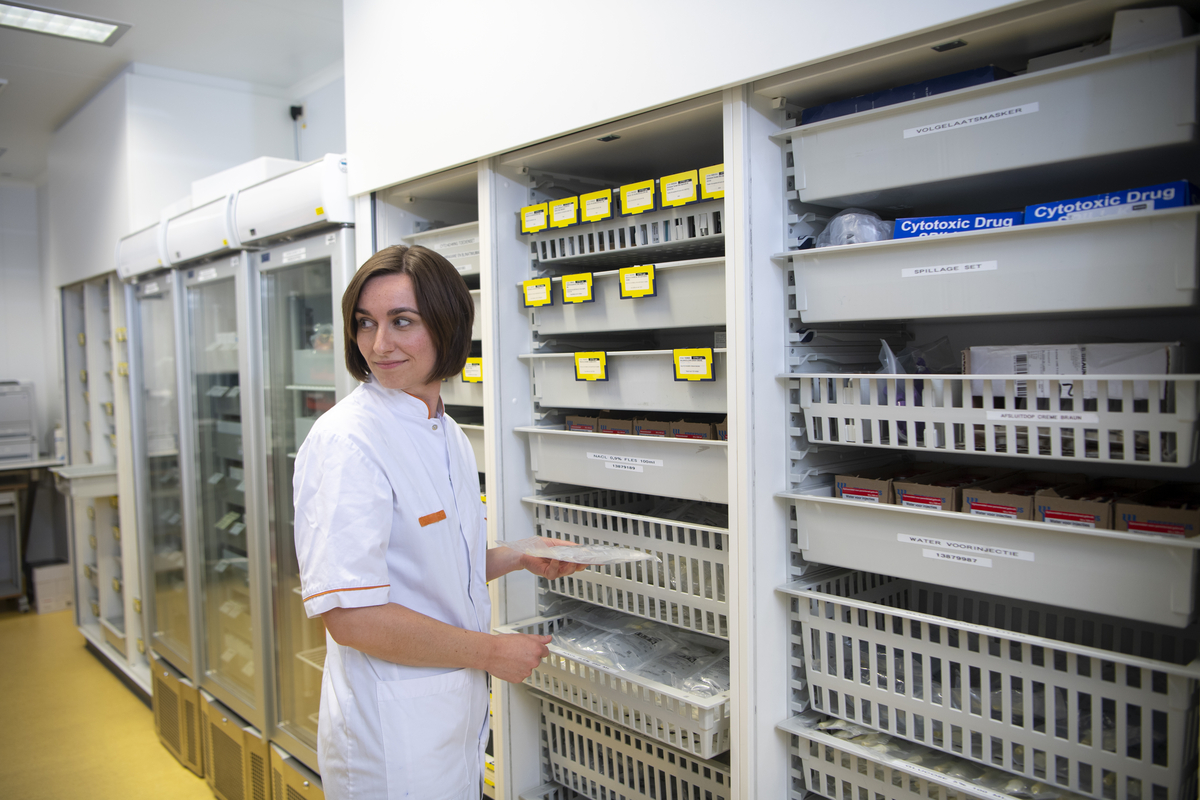 Both EAHP's SIG focused on the Use of Prefilled Syringes in Intensive Care Units and Operating Theatres (financially supported by BD) and EAHP's SIG on Automated Medication Management (financially supported by Omnicell) are currently gathering feedback with the help of surveys to inform their work. The survey linked to automation will remain open until the end of July, while comments on prefilled syringes can be submitted until the end of August.
Both EAHP's SIG focused on the Use of Prefilled Syringes in Intensive Care Units and Operating Theatres (financially supported by BD) and EAHP's SIG on Automated Medication Management (financially supported by Omnicell) are currently gathering feedback with the help of surveys to inform their work. The survey linked to automation will remain open until the end of July, while comments on prefilled syringes can be submitted until the end of August.
The activity of EAHP's SIG on Automated Medication Management focuses on the benefits of automation, particularly around the medication preparation/ compounding/ dispensing process, and how technology best meets the needs of different hospital pharmacy workflows. Hospital pharmacists are encouraged to share their views and opinions on the current and future use of automated medication management solutions. The short survey (10 to 15 minutes) will remain open until the 31st of July. Participation is voluntary and the SIG is looking for one response per hospital pharmacy. Six different language versions (English, French, Italian, Polish, Slovak and Spanish) are available.
EAHP's SIG focused on the Use of Prefilled Syringes in Intensive Care Units and Operating Theatres has prepared two surveys targeting on one hand professional associations and on the other hand health professionals and managers. Participation is completely voluntary. It should take approximately 10 to 15 minutes to complete the survey. Feedback can be shared until the 31st of August 2022. The survey for professional associations is available in English. The survey for individual health professionals and managers can be completed in eight different languages (English, French, German, Hungarian, Italian, Serbian, Spanish and Turkish).
Access the survey on automated medication management HERE
Access the survey for individuals on prefilled syringes HERE
Access the survey on prefilled syringes targeting professional associations HERE
Czech Republic takes over EU Council Presidency
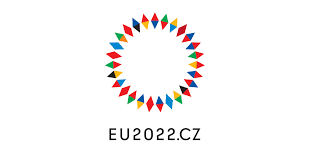 As part of the Trio Presidency of France, the Czech Republic, and Sweden, the Czech Republic took over the EU's Council Presidency on the 1st of July. Five closely linked areas will be the focus of the presidency that come together under the slogan "Europe as a task: Rethink, Rebuild, Repower".
As part of the Trio Presidency of France, the Czech Republic, and Sweden, the Czech Republic took over the EU's Council Presidency on the 1st of July. Five closely linked areas will be the focus of the presidency that come together under the slogan "Europe as a task: Rethink, Rebuild, Repower".
In the field of health, the Czech Presidency plans to continue the fight against the COVID-19 pandemic with a specific focus on improving the EU's preparedness for further health crises. Other health priorities include cancer, the proposal for a Regulation on the European Health Data Space, vaccination and rare diseases.
Learn more about the Czech Council Presidency HERE
Commission launches initiative on non-communicable diseases in Europe
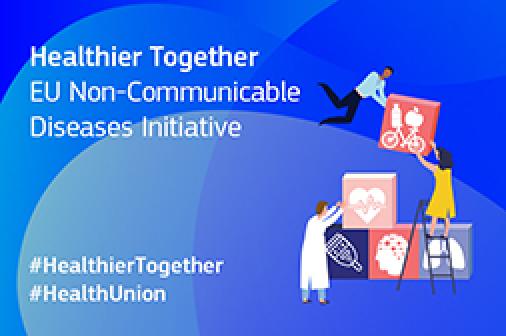 In the second half of June, the European Commission launched the Healthier together – EU Non-Communicable Diseases Initiative (EU NCD Initiative) which aims at supporting Member States to reduce the burden of NCDs in Europe. Key aims include addressing the leading causes of avoidable premature death in Europe and improving citizens' health and well-being.
In the second half of June, the European Commission launched the Healthier together – EU Non-Communicable Diseases Initiative (EU NCD Initiative) which aims at supporting Member States to reduce the burden of NCDs in Europe. Key aims include addressing the leading causes of avoidable premature death in Europe and improving citizens' health and well-being.
The Healthier Together Initiative on NCDs will concentrate on five key strands:
- Health determinants for health promotion and disease prevention
- Diabetes
- Cardiovascular diseases
- Chronic respiratory diseases
- Mental health and neurological disorders
The guidance document that was published includes recommendations to address risk factors such as unhealthy lifestyles. To implement action in the field of NCDs, 30% of the EU4Health budget is allocated to health promotion and disease prevention.
Learn more about the EU NCD Initiative HERE
Regulation (EU) 2017/746 on in vitro diagnostic medical devices applicable across the EU
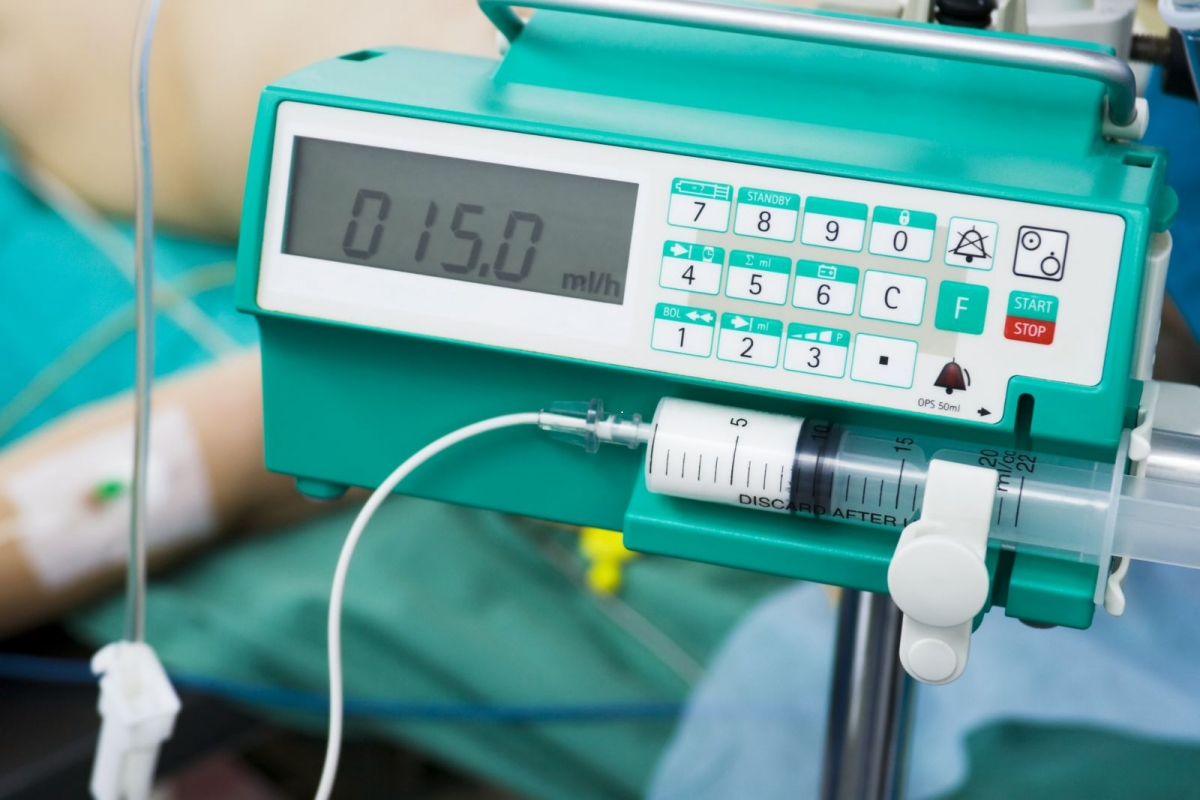 In case you missed the news, on the 26th of May the Regulation (EU) 2017/746 on in vitro diagnostic medical devices entered into application. This means that all new devices, along with those undergoing a significant change, as well as all class A non-sterile devices, must comply with the new rules. Transitional periods are in place for devices lawfully placed on the market under Directive 98/79/EC (except class A non-sterile) until 26 May 2025 or 26 May 2027, depending on the risk class.
In case you missed the news, on the 26th of May the Regulation (EU) 2017/746 on in vitro diagnostic medical devices entered into application. This means that all new devices, along with those undergoing a significant change, as well as all class A non-sterile devices, must comply with the new rules. Transitional periods are in place for devices lawfully placed on the market under Directive 98/79/EC (except class A non-sterile) until 26 May 2025 or 26 May 2027, depending on the risk class.
More information can be found HERE
EJHP: The July issue is out!
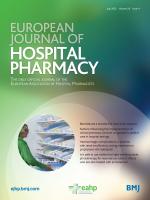
The July edition of the European Journal of Hospital Pharmacy (EJHP) is available. It contains several original research articles, a systematic review, two case reports, one hands-on medicines information segment and the EU and EAHP news section. The editorial focuses on randomised controlled trials. The effects of antifungal drugs on the plasma concentrations and dosage of tacrolimus in kidney transplant patients, haemorrhagic complications in patients with renal insufficiency during treatment or prophylaxis with dalteparin and long-term effectiveness and pharmacokinetics of the infliximab biosimilar CT-P13 after switching from the originator during the treatment of inflammatory bowel disease are some of the topics covered by the original research articles.
Read the July issue HERE
[EAHP Statement Corner]
Explore the evidence map!
Did you know that EAHP's Statement website contains an evidence map that helps you with the identification of Good Practice Initiatives (GPIs), case studies and the Statement Implementation Learning Collaborative Centres (SILCCs)? Have a look at the map and explore what your colleagues around Europe are doing: https://statements.eahp.eu/evidence-map




